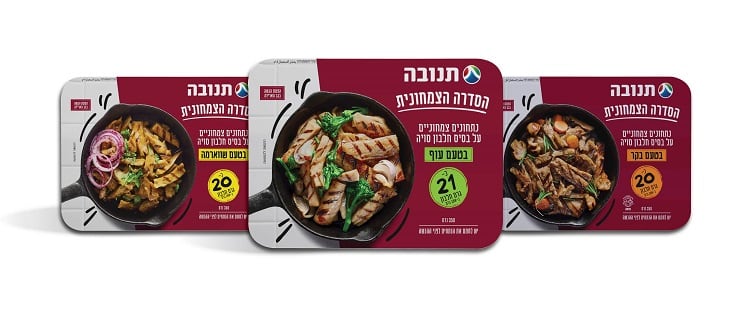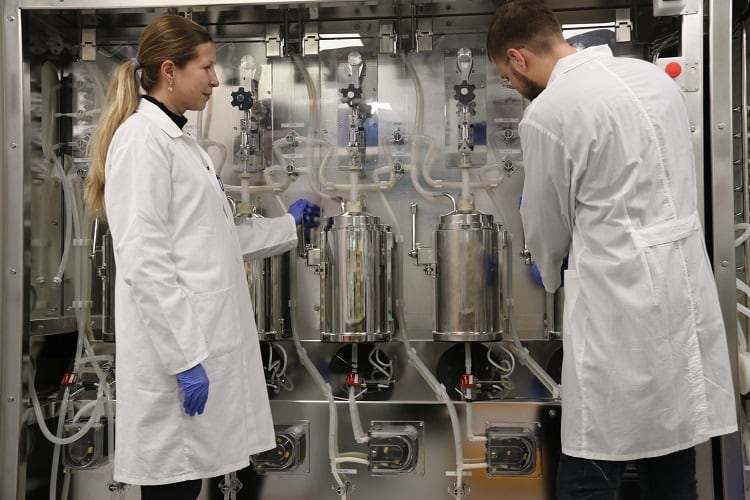In Israel, demand for meat replacements is expected to grow in the coming years. From a revenue of $20m (€18.54m) this year, Statista expects the market to increase by 12.4% annually over the next five years.
Israeli food major Tnuva has been playing in this category, predominantly with imported hamburger meat substitutes. But now, having established its new R&D Centre for Alternative Protein in Rehovot, the company is launching its first product line made at the site: the ‘Vegetarian Series’.
The ‘Vegetarian Series’ is made up of three products: plant-based alternatives to chicken, beef and shawarma.
The analogues are made from soya protein, comprised of soya protein isolate and soya protein concentrate. Each contains about 20g of protein per 100g. The product also contains egg protein albumin, hence its ‘vegetarian’ labelling.
“This is the first alternative chicken and meat products that were developed at Tnuva’s R&D alternative protein centre. The products are manufactured at Tnuva’s alternative protein plant-based plant in the north,” Pnina Sverdlov, head of the R&D and Projects Department of the Tnuva Group told FoodNavigator.
“Tnuva’s expertise in alternative protein and consumer preference led us to develop and produce products tailored to Israeli consumers.”

Indeed, Tnuva is a ‘pioneer’ in the alternative protein field in Israel, according to Anat Gross-Shon, CEO of Tnuva’s Dairy Division. Over the last decade, the company has invested more than NIS 250m (€60m) in R&D and production of alternative protein products.
“For the past two years, Tnuva has tested, experimented and evaluated a variety of alternative proteins, innovative ingredients and advanced technologies at our R&D center. We are proud to say that in consumer tests, our products scored highly,” Sverdlov told this publication.
“As the largest food company in Israel, Tnuva has in-depth knowledge of Israeli tastes along with advanced production and development capabilities that have allowed it to produce a product that has a similar taste and texture to meat.”
Tnuva’s Vegetarian Series will be launched in the first phase and marketed in the coming weeks in frozen food aisles of supermarkets and other retailers.





